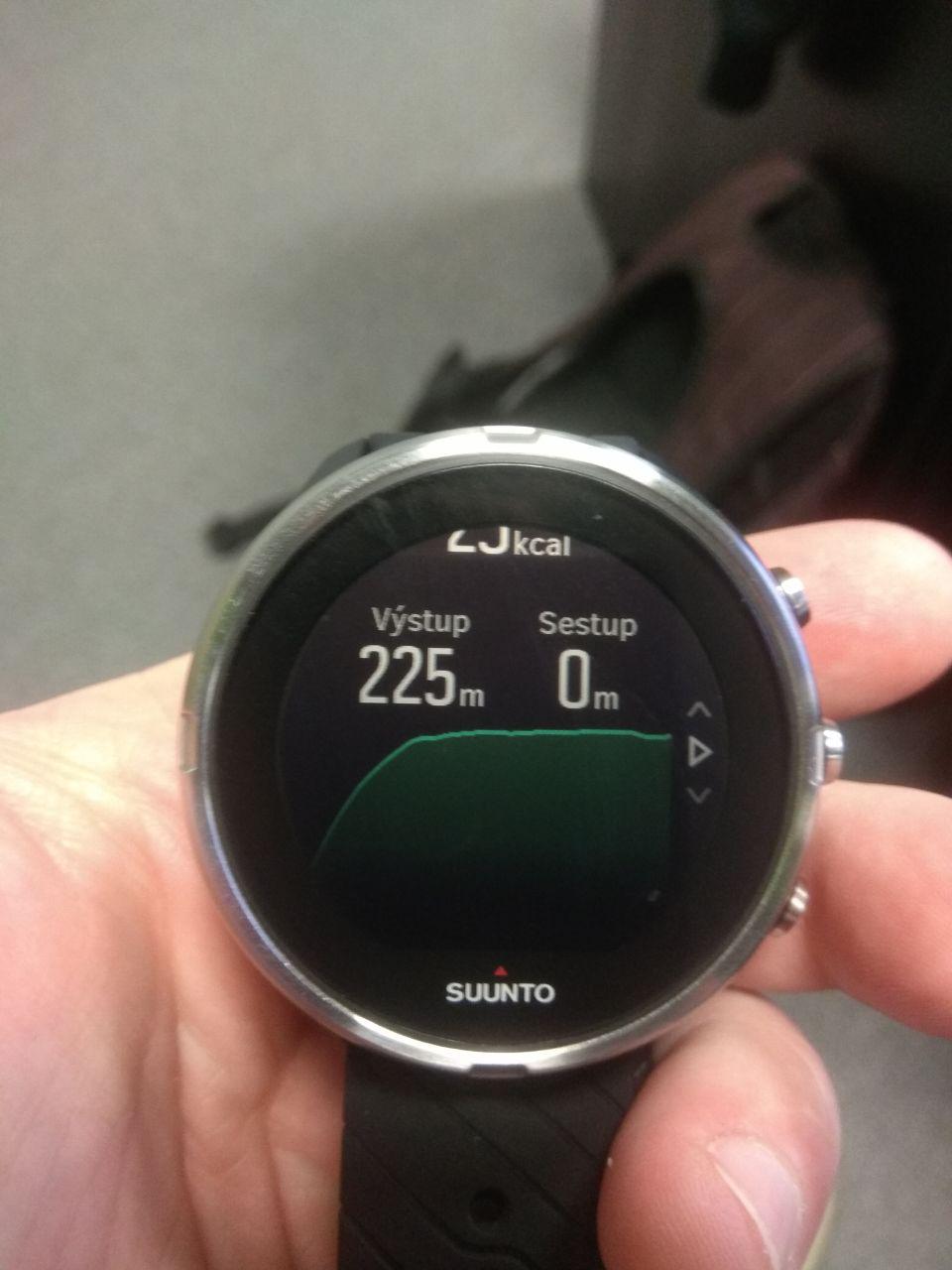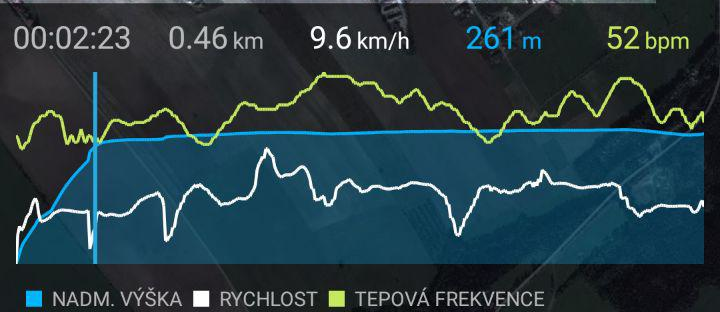-
Can it be caused by enabled GLONASS? Will try without it and report back
-
@Michal-Orlík said in [S9] Altitude starting at 0:
How can I check GPS Assist file? I synced watch and it was running some GPS optimization.
That process should update it. You can check it in the “about” view in your watch.
You can also try to soft reset the watch to reset the assist file, if glonass test doesn’t seem to work -
@Michal-Orlík said in [S9] Altitude starting at 0:
Can it be caused by enabled GLONASS? Will try without it and report back
It could, I think GLONASS is best in more Northern latitudes. I see very little difference with GLONASS enabled for me and it can make my tracks look worse. I usually leave it off.
-
Ok, so it looks like altitude is definitely better without GLONASS.
-
Hey I think I know the issue. This might happen the first time you do a run when the GPS is not properly warmed up.
Try to wait a bit longer after the GPS lock happens.
This happens when the GPS chip is cold aka:
- Watch is reset
- Watch is updated
- Watch is rebooted
- Watch crashed
- First run with the watch.
-
@Dimitrios-Kanellopoulos Yeah I started to wait little bit more also, so it might be now just placebo effect that I disabled GLONASS. Would be good to have number of satellites or some signal status on watches before activity. But I guess I should write this to support and not here

-
@Michal-Orlík Agreed that needs to be there in a good way to ask you to wait more or let you start quickly.
-
Hi @Dimitrios-Kanellopoulos,
when you say first run with the watch, do you mean the very first run with the watch, or first run of the day?
The reason i am asking this is because, I always find my runs elevation to be way off (like 200-300 ft) than the actual elevation. I have calibrated my watch several times, but the issue remains. Looking at the elevation profile in the app, there is always a big incline or descent at the very beginning. I always wait for the GPS signal to turn green, but the problem persists. I have never tried waiting for some time after the signal turns green (although, i must say that this approach seems odd to me).
I am sorry if this was the wrong post to ask this question. I have asked the Suunto customer service but haven’t heard back from them yet. -
@Ashish-Nautiyal Do you have an S9 baro ? This thread is for the non baro
-
@Dimitrios-Kanellopoulos No i don’t have a baro
-
@Ashish-Nautiyal sorry I was confused because you mentioned calibrated. What do you mean with that?
-
@Dimitrios-Kanellopoulos Yikes. I am sorry. Yeah please ignore the compass related comment. I meant trying with GLONASS and without it. But irrespective of that i always find my elevation readings to be way off than everyone else i am running with.
-
@Ashish-Nautiyal Do the charts/graphs look alike to others? IT is only the ascent/descent different?
-
@Dimitrios-Kanellopoulos Yes the map looking similar to others. Only the ascent value is different.
One of the reasons i posted on this topic is that I have noticed that in my ascent graph i always see a spike (increase in ascent or descent) right at the start (within a mile) of the run. So based on this discussion, i am thinking that may be my watch gps is not actually getting locked even though it shows green. -
@Ashish-Nautiyal no I know what it is. Do other service if you correct the ascent report a correct value for ascent?
Suunto uses a ±7m filer change for non-baro devices to avoid GPS problems.
Why 7? No clue I just asked.
On baro devices that number is 3 meters that works quite file imo. Remember that 1m change can happen with your hand swing only for example. ITs a complicated matter but well…
-
@Dimitrios-Kanellopoulos Yes so if i try to correct elevation in strava, it will bring it back to what i see with others (and its not that the other runners have just garmin or non-Suunto watch, some of them uses Suunto Ambit and haven’t faced any issue like mine).
What you mention does makes sense, although last week for my 40mile bike ride i got a difference of 500ft (which does seems really huge). Also it just feel awkward that i have to correct elevation after every activity.I tried something different for my today’s run. The activity didn’t uploaded automatically, so i exported the .tcx file and uploaded to strava.
Here is the link to my movescount and strava for the activity:
http://www.movescount.com/moves/move281124895
https://www.strava.com/activities/2296968004I didnt even have to correct the elevation it automatically came to what i expected it to be. There is difference of almost 200ft between what movescount and strava shows for the same activity. Does Suunto treat Ascent info different than other services?
-
@Ashish-Nautiyal the tcx format does not contain the ascent headers neither the fit from movescount unfortunately. Suunto apps sends the correct headers. Makes sense?
-
@Dimitrios-Kanellopoulos Ohk, so strava basically calculated the elevation gain there. Thanks for making some things clear to me. I still thing its odd to go through this lengthy process to find actual elevation gain, but i appreciate your help

-
@Dimitrios-Kanellopoulos the ±7m may come from the 15m radius of GPS accuracy perhaps ( i.e. https://lembergsolutions.com/blog/gps-accuracy-complete-guide-dummies ) but I remeber that vertically the accuracy is worse ( you see more satellites BESIDES your position than ABOVE your position and steeper angles to the source multiply the error, or something like that)…
Edit: I have to explain it better: for having a great HORIZONTAL position determined, the best thing would be to have the GPS satellites on the same horizontal plane you are, but somewhere spread around your positon in all directions (north, south, east, west…).
For a great VERTICAL position, as many satellites as possible direct above your position (this wont ever happen )would get the best to get the most accurate height (waighted average of all satellites).
)would get the best to get the most accurate height (waighted average of all satellites). -
@Ashish-Nautiyal yeah let me also give you more info np.
So here is how it goes:
- your watch altitude profile most probably and most of the times should be ok. It can get funky the worse the conditions get. GPS altitude is basically based on ping times afaik.
- Once you have the data you can calculate ascent with several ways, add filters and so on.
- That value is supported into .fit fomat mostly and some services even override that when you sync and do their own magic. Of course, if that is missing the service should calculate it anyway. That applies for eg to Strava as Movescount does not export the ascent/descent values.
- Several services allow you to recalculate the ascent/descent and more data from the “data”, that the fit file contains.
To be honest, it would be great if SA allowed you to do that. Like strava does.
Or allow the user to set the filter.I hope it helps.

